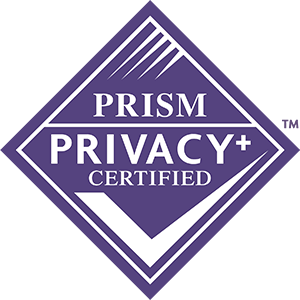Lessons Learned from Tax Identity Theft Week
 Tax identity theft occurs when criminals use personal information—such as your name, Social Security number, or date of birth—to fraudulently file tax returns and claim refunds. With tax scams evolving each year, it’s essential to recognize common schemes and take proactive steps to safeguard your financial information. Below are some of the most frequent tax-related scams and the key lessons learned from them.
Tax identity theft occurs when criminals use personal information—such as your name, Social Security number, or date of birth—to fraudulently file tax returns and claim refunds. With tax scams evolving each year, it’s essential to recognize common schemes and take proactive steps to safeguard your financial information. Below are some of the most frequent tax-related scams and the key lessons learned from them.
Common Tax Scams and How to Avoid Them
1. IRS Impersonation Scams
Scammers often pose as IRS agents, using fear tactics to pressure victims into making immediate payments. These scams typically include:
- Threatening phone calls demanding payment via wire transfer or prepaid debit cards.
- Fake IRS emails asking for sensitive personal details.
- Caller ID spoofing that makes it appear as though the call is from the IRS.
Lesson Learned: The IRS will never demand immediate payment, require a specific form of payment, or ask for credit card information over the phone. If you receive a suspicious call, hang up and contact the IRS directly at 1-800-829-1040.
2. Tax Identity Theft Scams
Fraudsters use stolen Social Security numbers to file false tax returns and collect refunds. Victims often discover the fraud only when they attempt to file their taxes and are informed that a return has already been submitted in their name.
Signs of tax identity theft include:
- Unexpected IRS letters about multiple tax returns filed under your SSN.
- Inability to e-file due to duplicate SSNs in the system.
- Notifications about unauthorized online IRS account activity.
Lesson Learned: Protect your information by:
- Filing your taxes early before scammers can.
- Using strong, unique passwords for IRS and financial accounts.
- Shredding sensitive documents instead of discarding them in the trash.
3. Email Phishing Scams
Fraudsters send emails that appear to be from the IRS, urging recipients to click on links to update tax information or claim a refund. These links lead to fake websites designed to steal login credentials and financial data.
Lesson Learned: The IRS never initiates contact via email, text messages, or social media regarding tax matters. Always verify suspicious emails by going directly to the IRS website instead of clicking on links.
4. Mailing Scams
A newer scam involves fraudulent IRS letters sent via mail, claiming taxpayers are entitled to unclaimed refunds. These letters request personal and financial information, which criminals use for identity theft.
Lesson Learned: The IRS does not send unsolicited notices demanding sensitive data through mail without prior communication. Always verify the legitimacy of a mailed notice by contacting the IRS.
Tips to Avoid Tax Scams
- File early: The sooner you file, the less time scammers have to use your information.
- Secure your IRS Identity Protection PIN (IP PIN): This unique six-digit number adds an extra layer of security to your tax return.
- Avoid responding to unsolicited emails or texts: The IRS does not initiate contact through these channels.
- Verify tax professionals: Only work with reputable tax preparers and professionals.
- Be cautious of online tax-related ads: Scammers often create fake websites that look like official IRS portals.
- Recognize red flags: Watch for poorly written IRS correspondence, suspicious URLs, and unexpected requests for personal information.
What to Do If You’re a Victim of Tax Identity Theft
- Contact the IRS at 1-800-908-4490 and report suspected fraud.
- File a complaint with the Federal Trade Commission (FTC) at ftc.gov/complaint.
- Place a fraud alert on your credit reports by contacting Experian, TransUnion, or Equifax.
- Check your IRS account for unauthorized activity by visiting the IRS website.
Partner With a Professional Shredding Service
Many scammers rely on discarded personal information to commit fraud. By securely shredding outdated documents, you can reduce the risk of identity theft. DeVries Business Services provides professional shredding and secure document storage to help safeguard your financial data.
For enhanced protection against tax identity theft, call us at 866-433-4691 or complete the form on this page.
Request Your Quote
We would love to hear from you! Please fill out this form and we will get in touch with you shortly.
"*" indicates required fields
Quick Contact Info
Business Hours
Helpful Links
Proudly Associated With
Quick Contact Info
601 E Pacific Ave
Spokane WA 99202
Toll Free:
Business Hours
Office Hours:
Mon - Fri
7:30am - 4:00pm
Closed for Lunch:
11:30am - 12:30pm
Drop-Off Shredding Hours:
Mon - Fri
8:00am - 3:00pm
Closed for Lunch:
11:30am - 12:30pm






